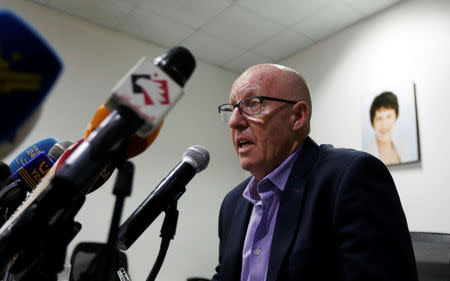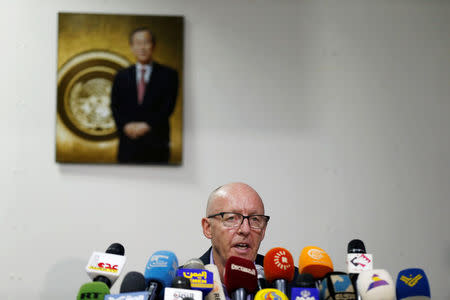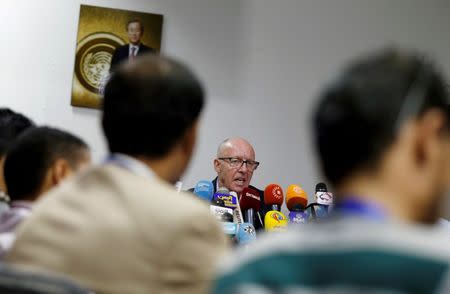U.N. says 10,000 killed in Yemen war, far more than other estimates
By Mohammed Ghobari SANAA (Reuters) - At least 10,000 people have been killed in Yemen's 18-month-old civil war, the United Nations on Tuesday, approaching double the estimates of more than 6,000 cited by officials and aid workers for much of 2016. The war pits the Iran-allied Houthi group and supporters of former President Ali Abdullah Saleh against President Abd-Rabbu Mansour Hadi, who is supported by an alliance of Arab states led by Saudi Arabia. The new toll is based on official information from medical facilities in Yemen, U.N. Humanitarian Coordinator Jamie McGoldrick told a news conference in the capital Sanaa. It might rise as some areas had no medical facilities, and people were often buried without official records. The United Nations human rights office said last week that 3,799 civilians have been killed in the conflict, with air strikes by the Saudi-led coalition responsible for some 60 percent of deaths. McGoldrick gave no breakdown on civilian casualties, adding the conflict has displaced three million Yemenis and forced 200,000 to seek refuge abroad. The United Nations had information that 900,000 of the displaced intended to try to return to their homes. "This is a big challenge, especially in areas still experiencing conflict," McGoldrick said. Some 14 million of Yemen's 26 million population needed food aid and 7 million were suffering from food insecurity. McGoldrick said the human situation in Yemen was "tragic" "Humanitarian work alone cannot solve these problems," he said. U.N.-sponsored peace talks ended earlier this month without agreement, and without an agreement for a new round. The collapse of negotiations was followed by stepped-up fighting across Yemen. U.S. Secretary of State John Kerry said after talks in Saudi Arabia last week that the United States, Gulf Arab states and the United Nations had agreed on a new push for peace. He said the new talks would try to twin a proposal for the Houthis to withdraw from cities they seized since 2014 with setting up an inclusive government. (Reporting by Mohammed Ghobari; Writing by Sami Aboudi; Editing by William Maclean and John Stonestreet)

 Yahoo News
Yahoo News 



